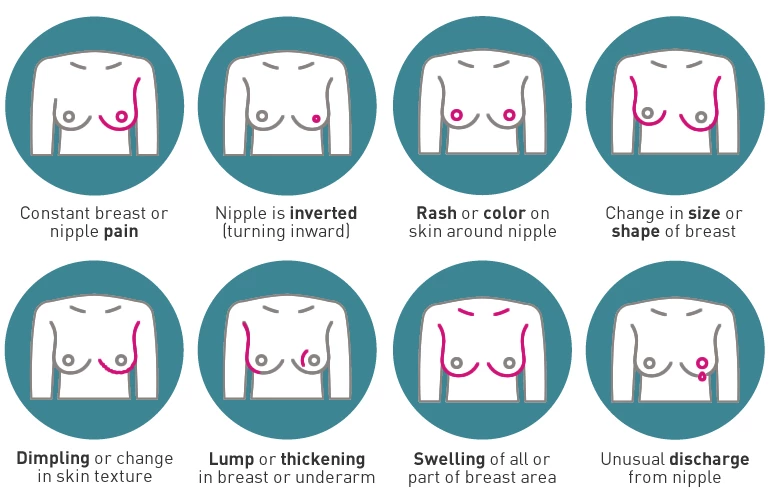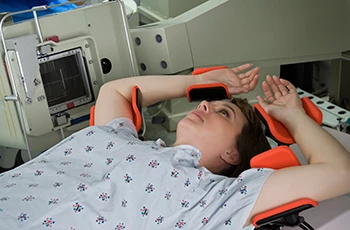Signs & Symptoms of Breast Cancer

Young adults CAN and DO get breast cancer. When it comes to breast cancer symptoms and signs of the disease, you are looking for more than just a lump. Breast cancer statistics show that nearly 80% of young adults find their abnormality themselves. So it's important to get familiar with your breasts and aware of the signs and symptoms. Tell your doctor right away if you notice any changes in your breasts.
Symptoms to Look Out for Include:
- A lump or unusual thickening in the breast or underarm area
- A change in color or rash on the skin of the breast
- Unusual nipple discharge
- Swelling of all or part of the breast
- A change in size or shape of the breast
- Itchy, sore or scaling of the nipple
- Dimpling on breast skin or nipple turning inward
- Breast or nipple pain that does not go away
Consult your physician if you experience any of the above symptoms of breast cancer. If your concern is not taken seriously, you may have to insist on discussing whether further testing is appropriate in order to rule out a breast cancer diagnosis.
What Can You Do to Prevent Breast Cancer?
Breast cancer cannot be prevented, but there are ways you can achieve an overall healthy lifestyle in mind, body and spirit to decrease your breast cancer risk factors.
- Eat balanced meals with many fruits and vegetables
- Drink plenty of water
- Get regular exercise
- Support bone health through physical activity and appropriate intake of vitamin D and calcium
- Limit your alcohol use to no more than one glass a day
- Get enough rest
- Reduce stress
- Pray, meditate or just find private time for yourself
- Make time for enjoyable and fun activities
- Do not smoke
YSC is here to help you feel supported and educated about breast cancer. Our searchable online resource database, downloadable guidebooks, and recordings of past educational workshops will help you be a proactive advocate for your health. Learn more.
Our Breast Health and You Guide
Talk to your family about a history of breast or other cancers on both sides of your family. Use the handy family tree in our Breast Health and You guide to help get the conversation started.


